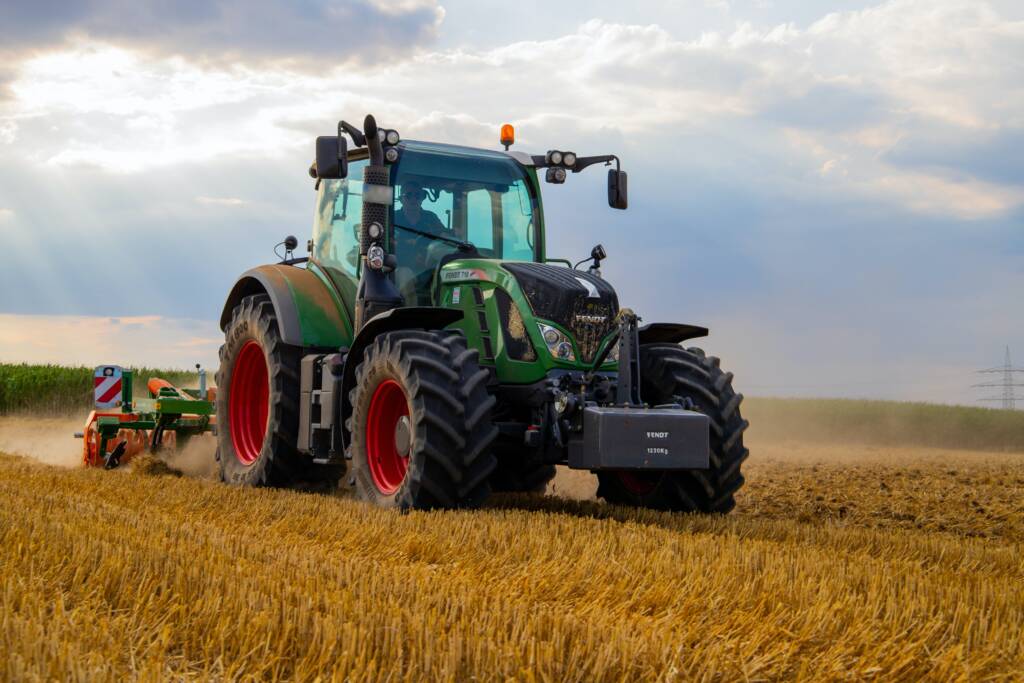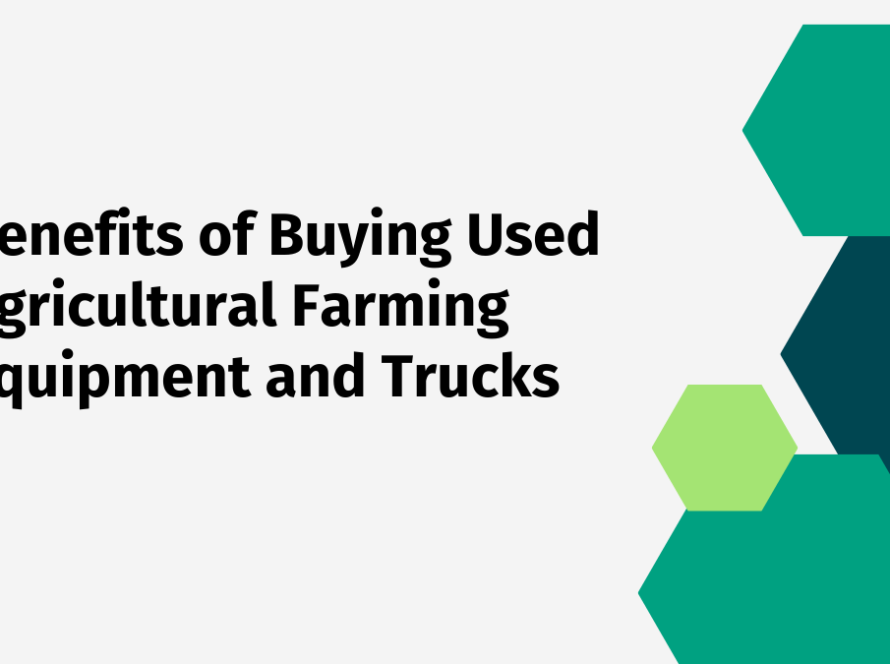Are you a farmer looking to revolutionize agricultural practices and maximize productivity? Look no further! When it comes to farming, selecting the right tractor is crucial. With countless options available in the market, choosing the perfect one can be daunting.
In this blog post, we will explain everything you need to know about picking the ideal tractors for farming. From horsepower to versatility and advanced features, we’ve got you covered. So strap on your overalls and prepare to embark on an exciting journey of finding the ultimate farming companion to take your operations to new heights!
Factors to Consider Before Choosing a Tractor
When it comes to choosing a tractor for your farming needs, there are several factors that you need to consider before making a decision. A tractor is a significant investment and can significantly impact the efficiency and productivity of your farm operations.
Therefore, it is crucial to carefully assess your options and choose the right tractor that meets your specific requirements. Here are some essential factors to keep in mind when selecting a tractor:
- Size and Power:
The size and power of the tractor should be one of the primary considerations when choosing a suitable model for your farm. Tractors come in various sizes, from small compact models to large heavy-duty ones, each designed for different purposes. The size of your land, the type of crops grown, and the tasks you need the tractor to perform will determine the size and power needed for optimal performance. - Type of Drive:
Two main types of drives are available in tractors – 2-wheel drive (2WD) or 4-wheel drive (4WD). A 2WD tractor is ideal for flat terrain with light workloads, while a 4WD is more suitable for rougher terrains or heavy-duty tasks such as plowing or hauling heavy loads. Consider the landscape and nature of work on your farm before deciding which type of drive best suits your needs.
Size and Horsepower
When choosing the proper tractors for farming, there are several factors to consider. One crucial aspect is the size and horsepower of the tractor. These two factors go hand in hand and play a crucial role in determining the efficiency and effectiveness of your farm operations.

The size of a tractor refers to its physical dimensions, including its length, width, height, and wheelbase. Tractors come in various sizes, from small compact models to large heavy-duty ones. The size you choose will depend on the type of farming you do, the terrain of your land, and your specific needs.
Terrain and Farming Needs
When choosing the right tractor for farming, one of the most important factors to consider is your land’s terrain and farming needs. Every farm is unique and requires a different type of tractor depending on the topography and varied crop types. This section will discuss critical considerations for selecting the appropriate tractor based on your specific terrain and farming needs.
- Terrain: The first step in determining which tractor suits your farm is to assess the landscape. Is your land flat or hilly? Do any obstacles, such as rocks, stumps, or ditches, need to be navigated? Choosing a tractor with enough power and traction to handle these challenges is essential. For instance, if you have rough or uneven terrain, a four-wheel drive (4WD) tractor would be more suitable as it provides better stability and traction than two-wheel drive (2WD) tractors.
- Soil Type: Another crucial factor in selecting a tractor is considering the soil type on your farm. Different types of soil require different types of tractors for optimal performance. For instance, if you have heavy clay soil, a powerful engine with high torque and large tires must work through challenging ground conditions without getting stuck. On the other hand, sandy soils need lighter tractors with narrow tires to avoid excessive compaction.
Budget and Maintenance Costs
Budget and maintenance costs are significant when choosing the right tractor for your farming needs. These factors will impact your initial investment and your farm’s long-term operation and profitability.
Setting a budget before beginning your search for a tractor is essential. This will help you narrow down your options and prevent overspending. Tractors can range in price from a few thousand dollars to over $100,000 depending on their size, horsepower, and features. Assessing your needs and avoiding purchasing more than required for your farming operations is essential.
Different Types of Tractors and Their Uses
Tractors are an essential tool for modern farming, providing the necessary power and versatility to perform various tasks. With technological advancements, multiple tractors are available on the market, each designed for specific purposes and with different features.
Choosing the right tractor for your farm can be overwhelming, especially if you are unfamiliar with its uses. This section will discuss the different types of tractors and their services to help you make an informed decision.
- Subcompact Tractors:
Subcompact tractors are smaller and ideal for small-scale or hobby farms. They have a horsepower ranging from 15-30 hp and can handle light-duty tasks such as mowing lawns, landscaping, gardening, and other similar activities. These tractors are also suitable for narrow spaces due to their compact size. - Compact Utility Tractors:
Compact utility tractors have a slightly higher horsepower range between 25-60 hp than subcompact tractors. They are versatile machines that can handle light-duty tasks like mowing and heavy-duty tasks like tilling the soil or moving materials around the farm. These tractors also come with attachments such as loaders and backhoes, making them useful for various applications. - Utility Tractors
Utility tractors are versatile and essential equipment for any farming operation. These powerful machines are designed to handle various tasks, making them invaluable tools for farmers. From ploughing fields to hauling heavy loads, utility tractors can be used for multiple applications on the farm.
One key feature distinguishing utility tractors is their ability to handle different attachments. These attachments can include front loaders, backhoes, mowers, and more. This versatility allows farmers to customize their tractors according to their needs and tasks.
Row Crop Tractors
Row crop tractors are essential for modern farming operations, as they provide the power and efficiency needed to cultivate crops on a large scale.
These versatile machines are explicitly designed for row crop farming, where crops are planted in rows with narrow spacing. This section will explore the key features and factors to consider when choosing a row crop tractor for your farm.
- Engine Power:
The first factor to consider when selecting a row crop tractor is engine power. The size of your farm and the type of crops you grow will determine the horsepower needed for efficient operation. Typically, row crop tractors range from 50-500 horsepower, with larger farms requiring higher horsepower machines. - Wheel Configuration:
Row crop tractors come in two-wheel configurations: 2-wheel drive (2WD) or 4-wheel drive (4WD). 2WD tractors are suitable for smaller farms with flat terrain, while 4WD tractors have better traction and are more suitable for hilly or uneven terrain. If your farm has varied topography, investing in a 4WD tractor is advisable to ensure smooth operation.
Garden Tractors
Garden tractors, also known as lawn tractors or ride-on mowers, are smaller versions of traditional farm tractors designed explicitly to maintain lawns and gardens. They are a popular choice among homeowners with large yards and gardens, as they offer the convenience of a riding mower while still being able to tackle heavy-duty tasks.
When choosing the right garden tractor for your farming needs, there are several factors to consider, such as size, power, and attachments. Let’s look at each aspect to help you make an informed decision.
Compact Tractors
Compact tractors, or sub-compact or small utility tractors, are famous for farmers and homeowners alike due to their versatility and ease of use.
These machines are designed to be compact, making them ideal for tasks requiring manoeuvrability in tight spaces. In this section, we will discuss the features and benefits of compact tractors and how they can be a valuable addition to your farming equipment.
- Size and Maneuverability:
One of the main advantages of compact tractors is their small size, which makes them easy to operate in tight spaces such as orchards, vineyards, or backyard gardens. These tractors typically weigh less than 4,000 pounds and have a narrow width of around 4 feet. This makes them perfect for navigating through narrow pathways or working between rows of crops without causing damage. - Power and Versatility:
Don’t let the small size fool you – compact tractors are packed with power! They come equipped with engines ranging from 20-50 horsepower (HP), making them capable of handling various tasks on the farm. From tilling soil to mowing grass, hauling materials to clearing snow – these versatile machines can do it all!

